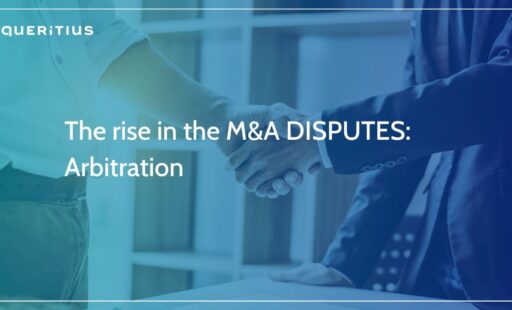The rise in M&A disputes and what to do about it: Arbitration

19. 12. 2023
In our recent practice, Queritius has seen a steady rise in disputes arising from M&A transactions. In the last posts of the series, we described the use of expert determination and litigation in such matters. Today, we would like to focus on the use of arbitration for the settlement of post-M&A disputes.
It is estimated that even up to 75 % of all SPAs have arbitration clauses.
The use of arbitration for the settlement of disputes arising from M&A transactions is not surprising, especially in international deals. The legal practice of mergers and acquisitions has standardized in the last decades and – with due regard being paid to the requirements of local laws – the pattern of disputes arising from such transactions is largely similar regardless of where the target company is based.
As a dispute resolution method, arbitration provides several unique advantages.
➡️ It allows the disputes to be resolved in a neutral forum and by a tribunal which is composed of arbitrators chosen by the parties.
➡️ It provides for confidentiality, which is of particular importance for the parties who frequently appear on either the buy or sell side in M&A transactions.
➡️ Arbitration allows for the resolution of the dispute much faster than court litigation.
➡️ It involves significant costs and a very limited review of the arbitral award, which means that a decision to take the matter to arbitration must be carefully considered.
In recent years, the number of post-M&A disputes which have been referred to arbitration has increased considerably. On this basis, the parties entering into a transaction should probably pay closer attention to the arbitration clause they decide to agree upon. There are three most important elements of every arbitration clause in an M&A transaction – the seat, the rules and the scope.
We will discuss these in our next blog post.
by Wojciech Sadowski
